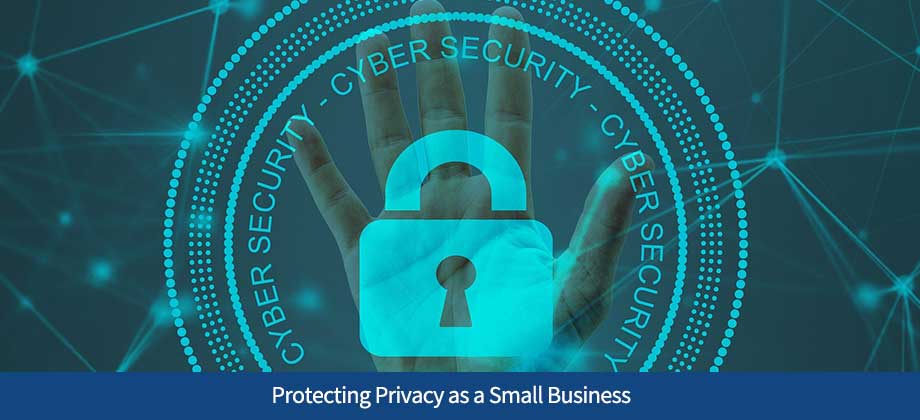Protecting Privacy as a Small Business

Data breaches are becoming more common as the global economy continues to go digital. Data is an incredibly hot commodity: It’s what we use to create personalized experiences for customers, provide targeted ads, develop new products, conduct research, pay employees, and more. So, it makes sense that access to this highly valuable personal information is highly coveted. In fact, it’s reported that the United States leads the world in the amount of data breaches experienced. We hear about personal data being compromised all the time by bad actors hacking into computer systems, but this is mostly at the corporate level. Corporations are also in the unique position of having lots of resources to combat these attacks; the same cannot be said for small businesses, who may not think the data they have on-hand is at risk due to their small scale. Many small companies are relying heavily on the cloud, and that just means data breaches are even more likely. That’s why it’s important for small business owners to take matters of privacy protection into their own hands—and we’re going to show you how.
Awareness
The first shift that needs to happen for small business owners is the realization that they’re not immune to these threats. Data can get into the wrong hands at any time, resulting in fraud, identify theft, etc. Cyber attacks today can be completely random, preying on vulnerabilities in computer systems that businesses might not even know exist.
Inventory
Secondly, take inventory. Identify what information you have, both employee and customer, so you’re aware of what’s at risk. Next, determine who has access to it: other employees? Your payroll department? The vendors you use for credit card transactions? Customer service representatives? Ask yourself if it’s absolutely critical for all of these parties to have first-hand access to this information. The less people who come into contact with it, the less likely a breach. Make sure you’re only collecting the information that is absolutely necessary to the function of your business, and double-check the laws surrounding the protection of sensitive data.
Protection
There are several key ways to protect personally identifiable information, and the first one is fairly obvious: Lock it up. Make sure files are stored behind a locked cabinet, employees are signing off their computers at the end of the day, and office doors remain locked. You should also be wary of allowing employees to download unauthorized software, and ensure you’re running anti-malware programs on computers and servers.
Regardless of how and when you’re using data, small businesses would do well to implement their own privacy policies and make sure consumers are aware of them. To do so, check out how bigger corporations are taking action and follow suit. It’s also good to look at what privacy policies are coming out of California, Australia, and the EU—they’re a great resource for what is likely to become the global norm.
Unification
If your business is able, look into consolidating the systems being used to house data. A unified technology stack connects several applications together on one platform, meaning just a single vendor is needed to perform every task—and remember, the fewer folks in contact with personal data, the better.
Protecting the privacy of your customers and employees is one of the most important jobs you have as a small business owner. Until there are national privacy laws on the books, companies are largely on their own to lay out best practices to avoid data breaches. We’ll continue to follow the latest trends in security and compliance to help business owners like you make the most of this data-driven world—without compromising the safety of consumers.

